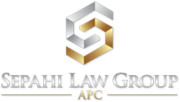 Many people who do work on their own to earn income or who operate a small business are sole proprietors. Sole proprietorship simply means that you work for yourself and that you earn income for which you receive a 1099 form instead of a W2 form.
Many people who do work on their own to earn income or who operate a small business are sole proprietors. Sole proprietorship simply means that you work for yourself and that you earn income for which you receive a 1099 form instead of a W2 form.
Because you earn money outside of wages paid by an employer, you are subject to certain obligations including filing quarterly estimated taxes with the Internal Revenue Service (IRS) once your earnings exceed a certain threshold. You are also responsible for paying for both the personal and employer portion of Social Security and payroll taxes on 1099 income earned while doing business.
Sole proprietorships are the simplest and easiest legal structure for entrepreneurs since you do not need to take any steps to begin operating this type of business. Outside of any professional or businesses licenses that are required for the specific type of work you do, you can simply open up your doors and begin offering a product or a service.
However, while sole proprietorships are simple, they are not necessarily the best legal structure for every business. There are some significant disadvantages associated with operating your own company as a sole proprietor and it is advisable for you to speak with an experienced attorney to determine if this is the right legal structure for you. Sepahi Law Group APC can help you to determine if you should continue working as a sole proprietor or if there is a more appropriate corporate organizational structure for you. Call today to speak with a member of our legal team and learn more.
Operating as a Sole Proprietorship
When you operate as a sole proprietorship, you and your business are one and the same in the eyes of the law. You, personally, are the business. This is true even if you operate under a different name (a dbaor doing business as). For example, if you open up a dentist office and call it Joe’s Dental Office but your office is not incorporated and no LLC is created, you are a sole proprietorship.
As a sole proprietorship, you are personally responsible for all debts that the business occurs. If the business goes bankrupt, you personally will go bankrupt with it and your personal assets can be affected. Likewise, if the business is sued, you are personally sued and will become responsible for paying any judgments against the company. Profits and losses pass through to your personal taxes and the business does not file a separate tax return.
Corporate Formation in San Diego: Legal Assistance and Guidance
Due to the personal liability for debts and losses, a sole proprietorship is a risky way to operate a business. If you have a company and want to protect yourself, contact Sepahi Law Group, APC to learn about options you may have including the formation of an S-corporation or C-corporation. Call today to get started on operating your business in the smartest possible way.

